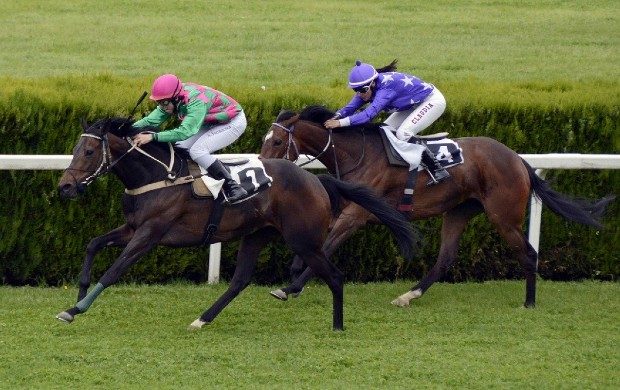Alongside Cheltenham and Royal Ascot, the Epsom Festival is one of the most anticipated events on the horse racing calendar. Here you’ll find Europe’s finest horses battling it out to claim the top prize in Britain’s richest horse race. Yes, that’s right, the Epsom Derby is worth more than the Cheltenham Gold Cup and even the Grand National.
As you can imagine, a race with so much on the line garners a lot of attention with millions of pounds in bets placed on the race each year. It’s always tough to identify the potential winner, and you’ll need expert advice and tips before you even consider placing a bet. But before you start thinking about bets and winners, it’s time for a little history lesson.
Where it all began
Believe it or not, we have to go all the way back to 1779 to learn about the origins of this most historic race. At that time, the 12th Earl of Derby and Sir Charles Bunbury met at the Oaks Stakes. Over drinks, they discussed the creation of a race over a mile or mile and a half on the downs at the spa town of Epsom (which is a great option for living outside the city by the way). The two agreed that the race would be run in 1780 and after the toss of a coin, they named it the Derby Stakes.
A year later on Thursday the 4th of May, the inaugural Epsom Derby took place. The race was open to three-year-old colts and of the nine runners that day. Sir Charles Bunbury’s horse, Diomed, won the race as a 6-4 favourite. Although the initial few races were over a mile, in 1784, it was extended to a mile and a half.
The race of the year
Almost from the very beginning, the Derby was the most important race on the British racing calendar. This was in part due to the race purse and the prestige of winning but it was also because it had become one of the most popular sporting events in the south of England. And the fact that Epsom was so close to the city meant that it became a firm favourite with the general public in London.
Regardless of whether or not their employers allowed it, many London-folk took Derby day off and went to the races. This was how it became known as the ‘Londoners’ day out’. The festival took on a carnival-like atmosphere with various games and activities available on the Downs over the course of the event. There were even some illegal bare-knuckle boxing matches held and their location was kept secret until it was time to fight.
For the next half a century, the Epsom Derby was the race of the year. It captivated the entire nation with many of the races considered some of the best and most competitive ever run on British soil. Of course, some racing purists will tell you otherwise, but in terms of historic and cultural value, there’s no race quite as important the Epsom Derby.
The modern day Derby

During the 20th Century, the Derby continued to excite the nation with the 1965 winner Sea Bird being one of the most memorable. Such was his complete domination of the field that it seemed incomprehensible that a horse could run that fast with apparent ease. Any doubts of him being a one-hit-wonder were dismissed soon after when he went on to win the Prix de l’Arc de Triomphe.
Throughout the years, the Derby remained one of the most, if not the most valuable race in Britain. And, of course, the Epsom Fair with its carnival-like atmosphere continues to delight racegoers. Although, the Derby is sometimes lost in the shadow of events like Aintree, Royal Ascot, and Cheltenham, it is still and always will be one of the most important sporting events in the London area.








